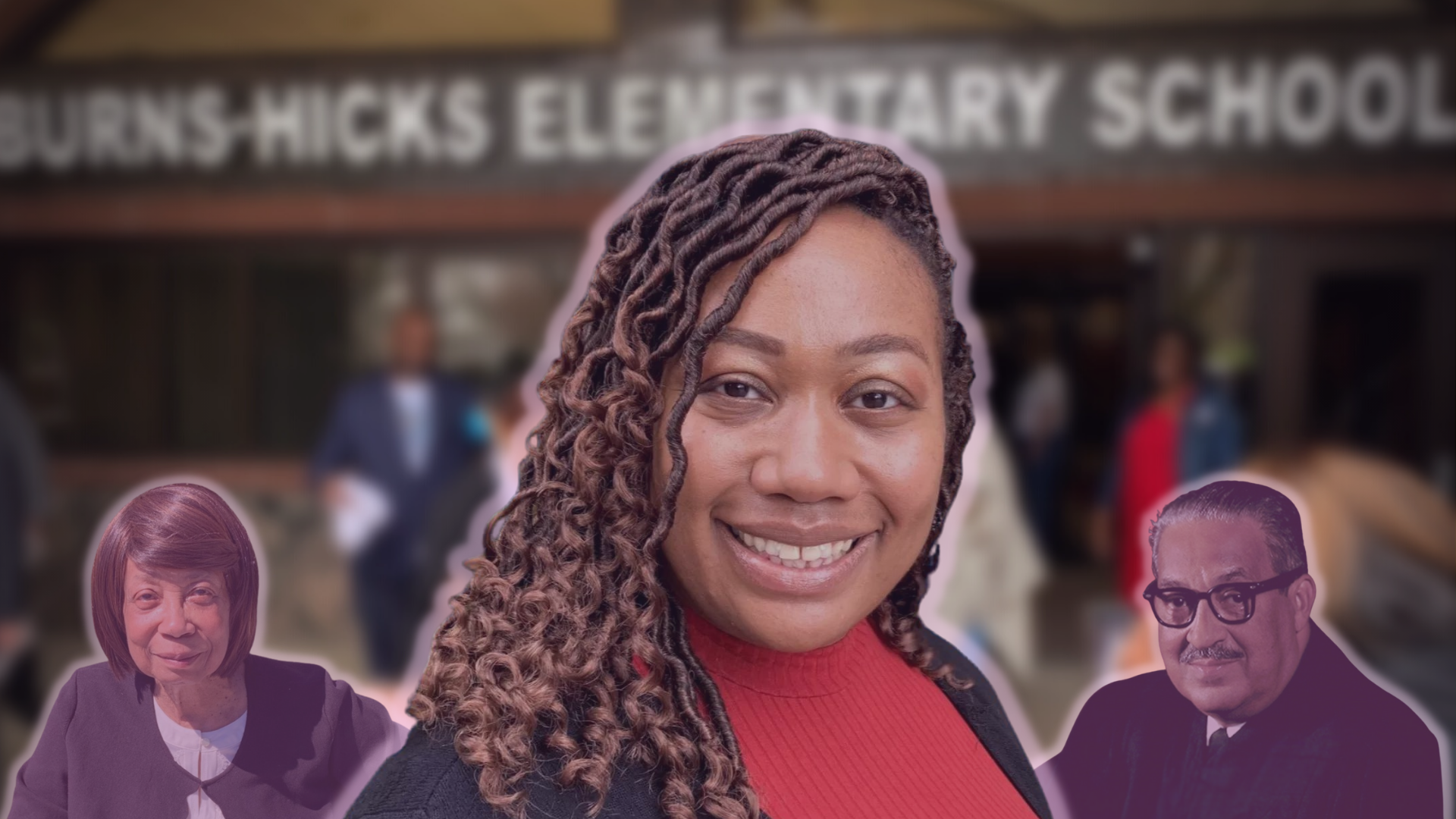In honor of Black History Month, Family Promise is highlighting our Racial Justice Council members and their efforts to ensure racial equity is addressed at all levels of Family Promise’s work.
Nakeshia Hedrick will never forget her kindergarten teacher. She was the person that inspired Hedrick to craft the goal of becoming the first ever Black female Supreme Court justice.
“I remember Mrs. Hicks teaching us about Black leaders and Black culture,” Hedrick said, also noting that Mrs. Hicks was the first Black teacher in her school district. “I especially remember learning about Thurgood Marshall. He was the first Black Supreme Court Justice, and he orchestrated the legal argument for Brown v. Board of Education – the historic case that banned segregation in public schools. I wanted to become an attorney because of him.”
Hedrick is currently Family Promise’s Northeast Regional Director but entered the social services field by chance. While working as a legal secretary and volunteering with inner city youth and young adults, Hedrick began to see how she could fashion her passion for mentoring and empowering young people into a career in education. She was looking into employment in the collegiate space when she came across a job listing from Family Promise of Greater Lafayette (IN), where she wound up serving as the Affiliate’s executive director for two years before joining the Family Promise national staff.
“The [Greater Lafayette] role had the community service aspect that I liked,” Hedrick said. “It combined my personal beliefs on hospitality and empowering others. It helped me realize I didn’t need to become an attorney to impact the change I wanted to see.”
The foundation for Hedrick’s personal beliefs was built by her mother, a long serving social services professional.
“She worked at a girl’s foster home,” Hedrick said. “She maintained relationships from that role, and I saw the joy she got from helping others.”
In addition to serving as a Family Promise regional director, Hedrick is a member of the organization’s Racial Justice Council (RJC), a committee working to ensure that Family Promise addresses racial equity issues at all levels of the organization. The committee was formed in 2020 shortly after the murder of George Floyd, and Hedrick was one of the founding members.
“It was sad how the committee emerged [because of George Floyd’s murder], but I was excited that Family Promise was taking a stance and addressing racial inequities,” Hedrick said. “When I was told about the Racial Justice Council being formed, I knew I wanted to be a part of it.”
Since its founding, the RJC has hosted thoughtfully crafted webinars for Family Promise Affiliates that have delved into delicate topics like white saviorship and storytelling through a DEIA lens. The committee also produced a DEIA online training tool that has empowered Family Promise’s national network to participate in crucially important sessions covering everything from equity to white privilege.
“The online training tool shows that we are trying to intentionally have DEIA be a part of everything we do at Family Promise,” Hedrick said. “Systemic racial inequities are the reason that people of color are disproportionately affected by homelessness and that social service providers are majority white. That alarming fact is not coincidental. However, it is sobering and as experts in the field of family homelessness, we as an organization need to address those dynamics head on.”
Hedrick’s favorite aspect of the RJC’s work has been the in-person panels hosted at last year’s symposiums in Morristown, NJ, and Las Vegas.
“For me, the shining point of RJC has been the panels,” Hedrick said. “They have been great opportunities to share some of the discussions we’ve had as a council [in closed meetings] with the broader Family Promise network. I’ve loved seeing the engagement in real time.”
Hedrick has also seen the impact of the RJC’s work on the ground at some of the Family Promise Affiliates she works with in the Northeast. She stresses that she “lives DEIA everyday” and is proud that Affiliates have taken the topic to heart.
“My Affiliates are being intentional about threading DEIA into everything they do.”
And that’s the key word: intentional. Mrs. Hicks was intentional in her efforts to teach her kindergarten class about Black history. It allowed her majority Black classroom to paint specific dreams for themselves. It allowed Hedrick to find inspiration from a Black Supreme Court justice. And that inspiration turned into a career of community engagement, hospitality, and service.

